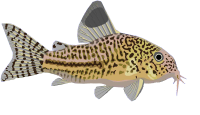I am rather new member of this planetcatfish, and I am also interested in Callichthyidae ( Aspidoras, Brochis, and Corydoras ) very much, but I am just a beginner of breeding all of these species. I am breeding Corydoras Duplicareus F0 and Corydoras Sterbai F0 now, and I got 5 times of Corydoras Duplicareus eggs and 2 times of Corydoras Sterbai eggs, but I haven't gotten any fries. I am so disappointed because Corydoras eggs always got fungus all the time. I have tried to read all information, and follow all the rules about taking care of Corydoras eggs, but they've still gotten fungus on them. I gentlely tried picking up eggs with my hand, used fish net, which hung from the side of spawning tank, using razor blade from the glass, and finally using Methylene Blue for treatment of fungus eggs and bacterial infections, but all the rules still haven't worked out with all my Corydoras eggs, or I did the wrong treatments. My final treatment by putting Methylene Blue medicine I take all the Corydoras eggs from the breeding tank, and I put The Methylene Blue medicine in the Corydoras eggs' tank, but eggs still got some fungus. I am so disappointed and so discouraged very much. Is anyone help me to figure out what happen to my treatments of hatching Corydoras eggs. I love Corydoras very much and I am trying to breed them, but it hasn't worked out. Please! help me. It will be greatly appreciated. Thank you very much.
Bunthid or Max






